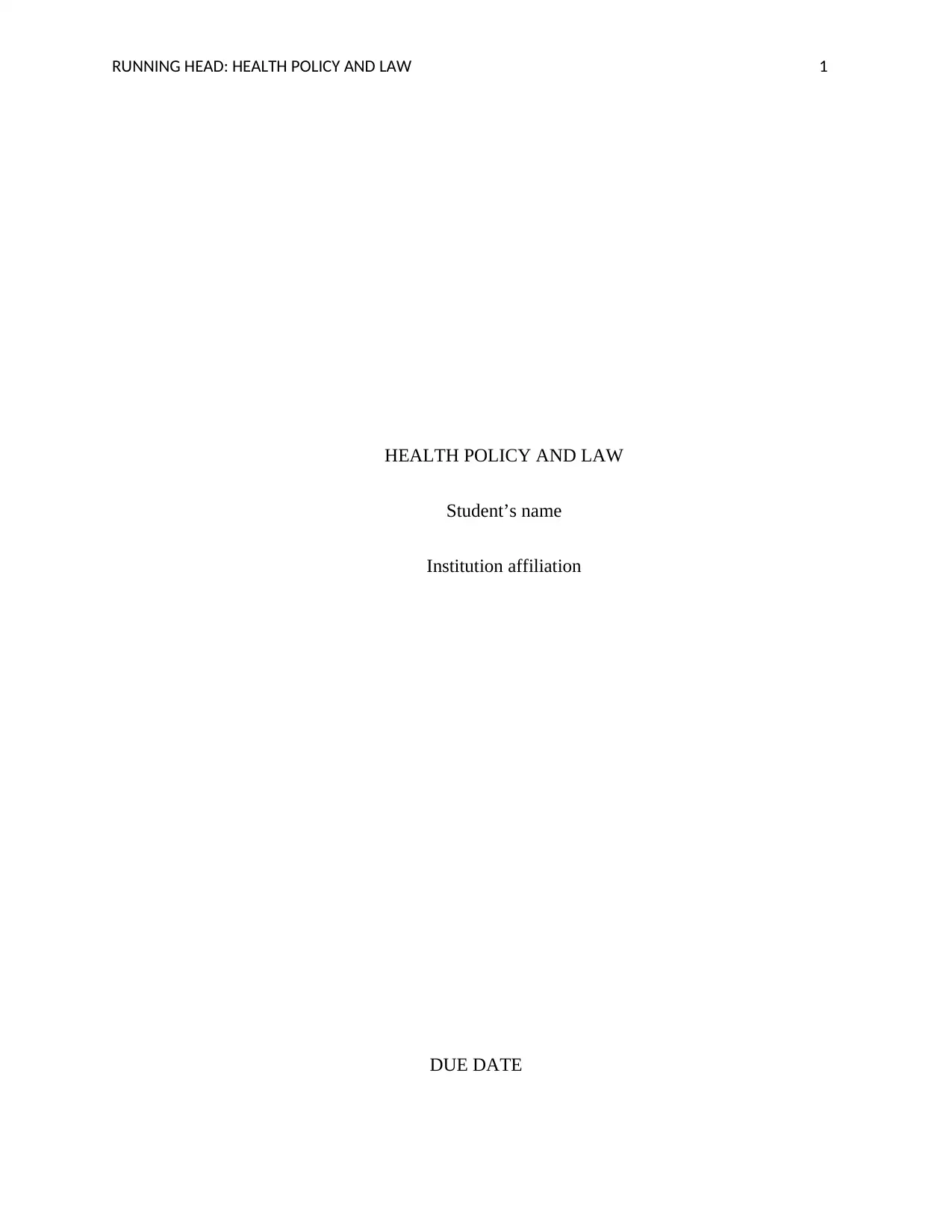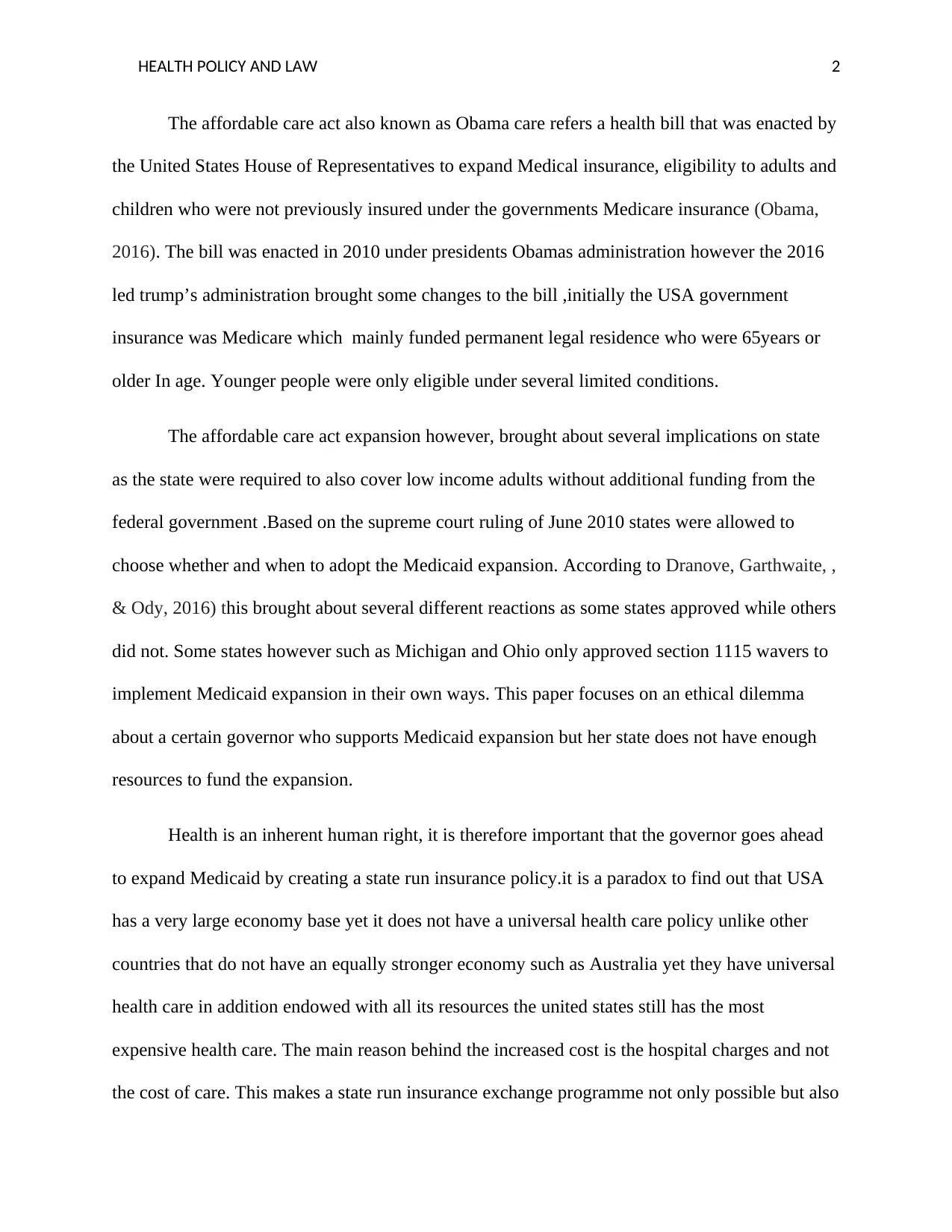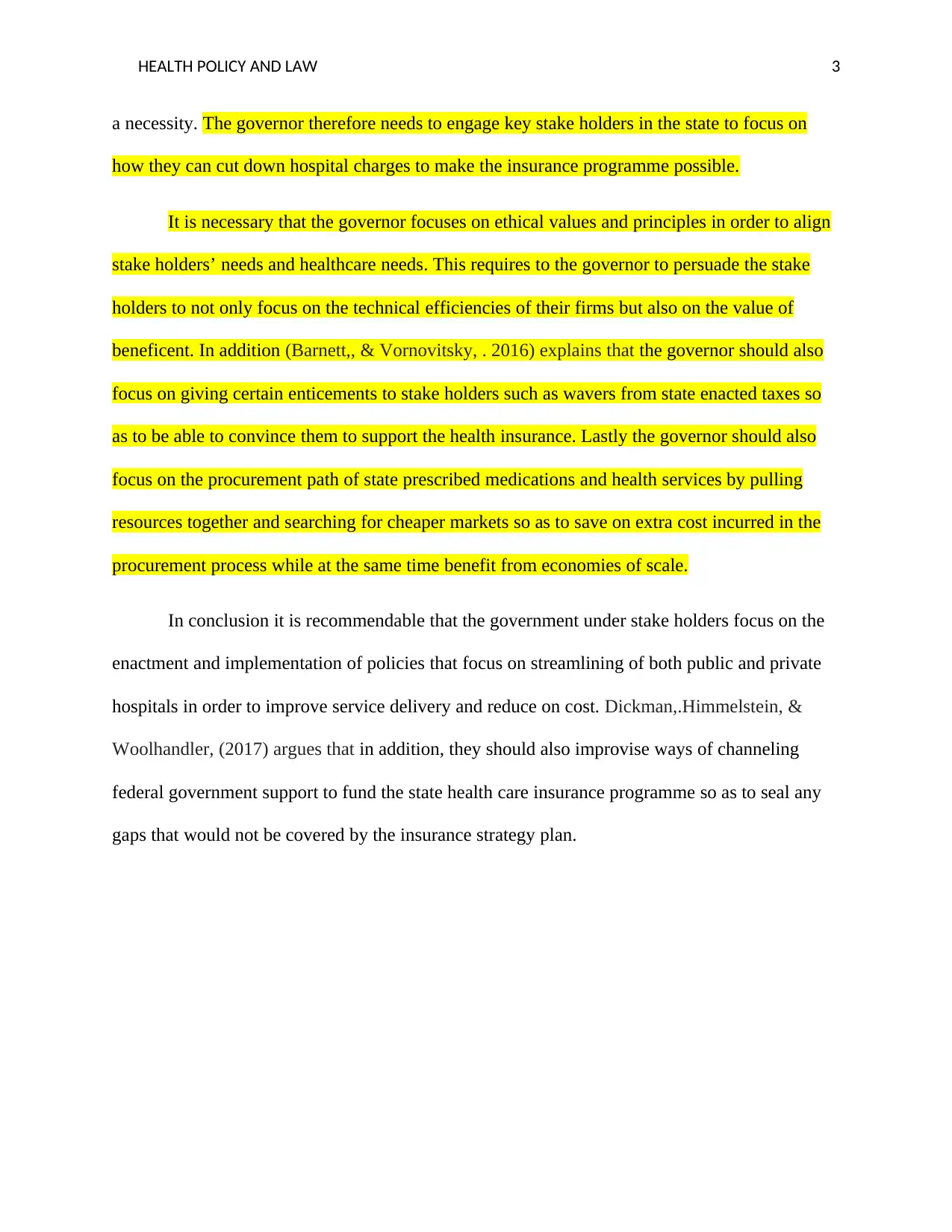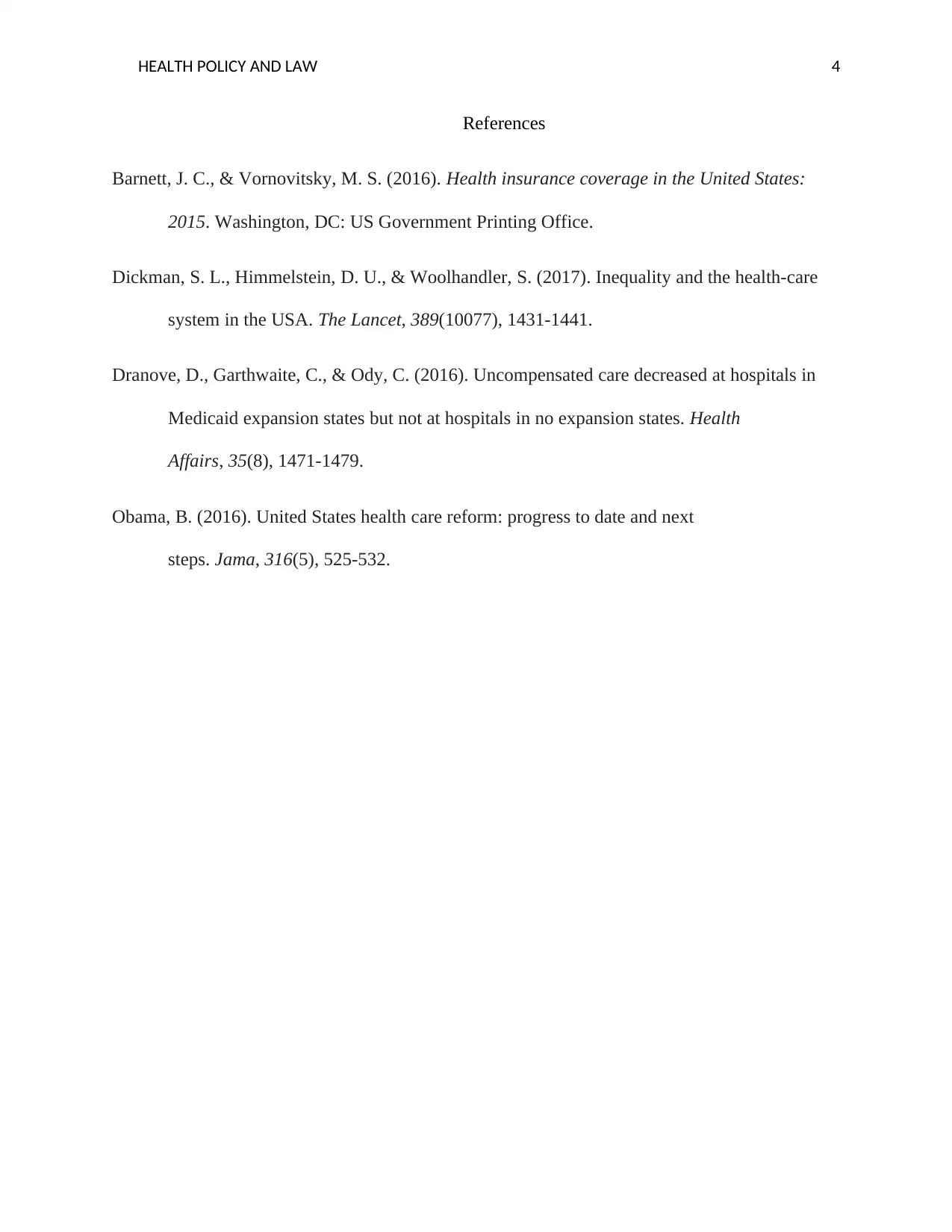Health Policy and Law: Medicaid Expansion and Stakeholder Engagement
VerifiedAdded on 2023/01/19
|4
|806
|64
Report
AI Summary
This report delves into the complexities of health policy, focusing on the ethical dilemma faced by Governor Jadyn regarding Medicaid expansion and the establishment of a state-run insurance exchange. It explores the financial burdens associated with the Affordable Care Act and the challenges of providing healthcare access in a fragile economy. The report provides a detailed analysis of the issue, considering factors such as the governor's concerns about state resources, the potential impact on state agencies, and the implications of federal government involvement. It examines the benefits of Medicaid expansion and a state-run insurance exchange, while also addressing the financial constraints and stakeholder engagement. The report suggests a strategy for the governor, emphasizing the importance of stakeholder engagement, cost-cutting measures, and ethical considerations to ensure healthcare accessibility and affordability for all citizens. It highlights the need to streamline public and private hospitals, channel federal government support, and focus on the value of beneficence to align stakeholder needs and healthcare goals. The report concludes with recommendations for policy implementation and improvement of service delivery within the state, with references to relevant research and policy documents.
1 out of 4











![[object Object]](/_next/static/media/star-bottom.7253800d.svg)